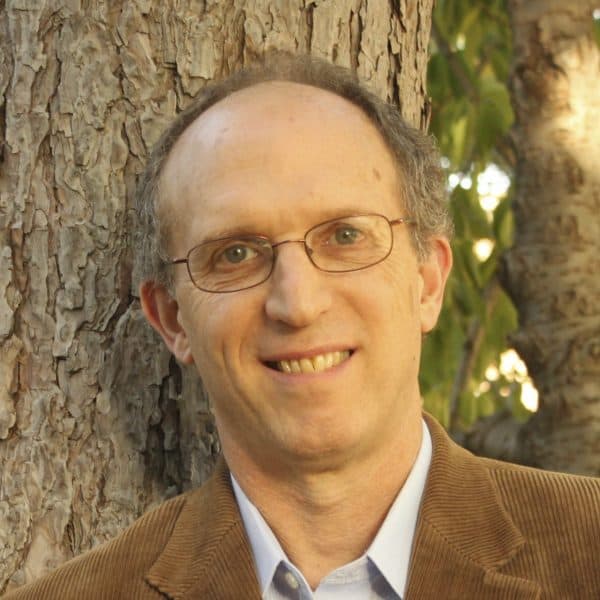Advertisement
'A Holy Curiosity': We Can Vastly Improve Education By Teaching This One Skill

Today marks the 135th birthday of that great genius of the 20th century, Albert Einstein. Indeed, the words “Genius” and “Einstein” are forever linked. One of the keys to Einstein’s genius was his determination to never stop questioning, to “never lose a holy curiosity.”
The case for the importance of questions has just been taken up anew by author Warren Berger. In his book, “A More Beautiful Question: The Power of Inquiry to Spark Breakthrough Ideas,” Berger highlights the catalytic power of questions across many fields. They lead directly to innovations in technology, medicine, industry and more. The evidence is so compelling that it leads to… well, a question:
If questions are essential for learning and discovery, why aren’t more schools deliberately teaching the skill of question formulation? Schools of education train teachers to ask questions of their students, but rarely prepare them to teach students how to ask their own. There are, certainly, a few pockets of the educational universe where questions are actively encouraged. But, generally, the number of questions students ask as they make it through their school years actually declines. There’s something wrong with this picture.
One of the keys to Einstein’s genius was his determination to never stop questioning, to 'never lose a holy curiosity.'
Teaching the simple, but sophisticated skill of asking questions would actually strengthen instruction in the “3 Rs” (reading, writing and arithmetic) which loom large for how both students and schools are assessed. It should be obvious: A student who knows how to ask questions will read, write and compute better than one who does not. And, if we still believe that schools have a citizen-building role, then, it is all the more urgent that we help students develop the ability to ask questions as a foundational problem-solving and democratic skill. We can imagine a dictatorship that doesn’t encourage questions. But we should expect more from a democracy.
The skill can be taught. I’ve observed how novice as well as veteran teachers can learn to pivot from always asking questions of students to deliberately teaching them to ask their own. The changes — in even the most challenged students — are striking. A second-grader in a Chicago elementary school shared, after learning to ask her own questions: “Now, I feel like I can figure things out for myself.”
In McComb, Mississippi, students in a middle school became more sophisticated question-askers and took their new skill from classroom to classroom, provoking several teachers to note that they had never seen the students so excited about learning as when they were asking their own questions.
In a Boston Public School remedial summer program for high school students, a teacher deliberately and consistently taught the skill of question formulation. By the end of the program, her students felt they were “getting good at this question thing.” One student said: “It makes me feel smart.”
Advertisement
Even the already recognized “smart folks,” including the scientist Stuart Firestein of Columbia University and author of “Ignorance: How It Drives Science,” often say that their work rests on a foundation of good questions. But, too often, students (and young scientists) acquire the skill only through years of trial and error.
Brandeis University's associate provost of innovation in education, Dan Perlman, is changing that pattern in his biology classes. He begins his courses with students learning how to ask and improve their own questions. He reinforces the skill through the semester and concludes the course by having students ask questions about the same topic they focused on at the beginning of the course. The students are struck by how their questions "are now much deeper. They show how much more we’ve learned and how much more we can learn.”
If questions are essential for learning and discovery, why aren’t more schools deliberately teaching the skill of question formulation?
When I saw Professor Perlman’s students actively engaged in their learning just by asking questions, I thought of another science teacher in a very different environment. He’s teaching in a middle school with all low-income students along the Texas-Mexico border. In a brief morning training with a teaching mentor, he learned one method for teaching students to ask their own questions. Later that day as the mentor left the school, he told her: “I need to talk with you. I went back and changed my lesson plan for the afternoon to show you that this could not work with our kids. I’m embarrassed to say we’ve been underestimating how well our kids can think when given the right tools.”
This Texas middle school teacher is on to the importance of respecting how well our students can think. Give them a chance to learn to ask their own questions and watch their minds go to work. They become self-directed learners, just like the Chicago second grader who was excited to realize that she “could figure things out” on her own. A small pedagogical shift in practice made that happen. It’s a simple, low-cost recipe for more academic success and more joy for teachers and students alike. It doesn’t take a real “Einstein” to see that.
Related:
